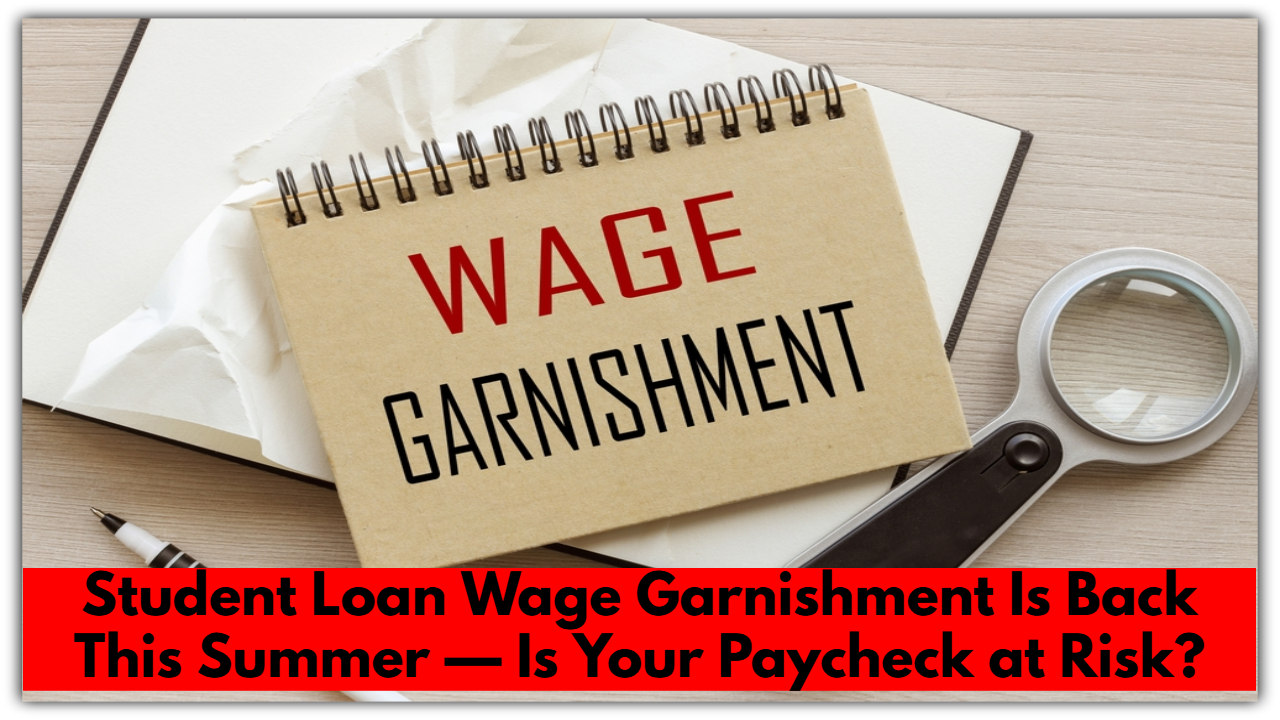Student Loan Wage Garnishment Is Back This Summer — Is Your Paycheck at Risk?
If you’ve fallen behind on your federal student loans, you might be in for a rough summer. After a long break during the pandemic, the government is getting serious about collecting on those unpaid loans again — and that means they could start taking money right out of your paycheck.
Sounds scary, right? But don’t freak out just yet. There are ways to handle this and protect yourself. Let me walk you through what’s going on and what you can do.
What’s Going On?
Since May 2025, the Department of Education has started going after folks who haven’t kept up with their student loan payments. They paused collections during COVID to give people a break, but now the pause is over.
If you’ve defaulted — basically, missed payments for a long time — you could get a notice soon saying they’re about to start garnishing your wages. That means up to 15% of your paycheck could be automatically taken to pay off your loan.
How Much Money Are We Talking About?
They can take up to 15% of your after-tax paycheck, but they have to leave you with enough money to cover basic stuff — at least $217.50 per week.
It’s not just your paycheck, either. They could also:
-
Grab your federal tax refund
-
Take a part of your Social Security benefits (though this is paused for now but might start again later)
-
Seize other federal payments you get
Who’s Most at Risk?
Anyone who’s seriously behind on their federal loans — like, 270 days or more without paying — needs to watch out. That’s millions of people across the country.
Older folks are especially at risk since some have student loans and rely on Social Security. They could see their benefits cut once the current pause lifts.
What Can You Do to Stop This?
If you get a notice or think you’re in trouble, don’t ignore it. Here’s what you can do:
-
Call the Default Resolution Group. They’re part of the government and can help you figure out your options.
-
Rehabilitate your loan. That means making nine on-time monthly payments. After that, your loan’s no longer in default.
-
Consolidate your loans. Combine everything into one new loan to get out of default.
-
Look into income-driven repayment plans. These adjust your payments based on how much money you make.
-
Ask about deferment or forbearance. These pause payments for a bit, though interest may still add up.
And remember, the government has to give you at least 30 days’ notice before they start taking money from your paycheck. You can also ask for a hearing if you think it’s wrong or would cause serious problems.
Your Rights, Plain and Simple
-
Your boss can’t fire you just because your wages are garnished.
-
You can challenge the garnishment if you think there’s a mistake.
-
You’ll get official notices so you know what’s happening.
Where to Get Help
-
Check out StudentAid.gov for all the official info.
-
Reach out to the Default Resolution Group — they’re there to help.
-
If you need it, look for free or low-cost legal advice.
The break on student loan collections is over. If you’re behind, wage garnishment could start soon. But don’t panic — you have options, and help is out there.
The best thing? Act now before money starts getting taken from your paycheck. Reach out, explore your options, and take back control.
Need help figuring out your next steps? Just ask — I’m here to help.



Comments are closed, but trackbacks and pingbacks are open.